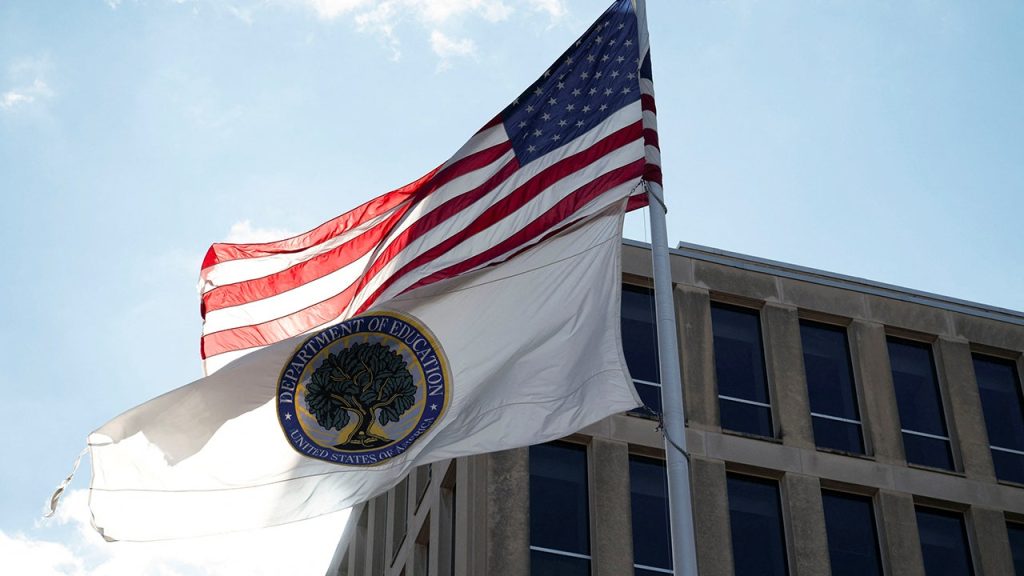The U.S. Department of Education has clarified that observances such as Black History Month do not violate recent federal directives mandating state education departments to eliminate diversity, equity, and inclusion (DEI) policies or risk losing federal funding. This clarification follows a letter sent to all 50 states, which outlined compliance with civil rights laws by a specified deadline. The guidance underlines that educational and cultural events, as well as programs acknowledging contributions from various cultures, are permissible as long as they do not engage in discriminatory practices.
| Article Subheadings |
|---|
| 1) Clarification on DEI Policies |
| 2) Federal Guidance Overview |
| 3) Impact on Educational Institutions |
| 4) Political Context and Federal Orders |
| 5) Future Implications for DEI Programs |
Clarification on DEI Policies
In a recent move, the Department of Education reassured educational institutions that events and programs honoring diversity, such as Black History Month, remain lawful under current federal regulations. This clarification aims to ease concerns among state education departments that might misinterpret compliance measures as prohibiting engagement with diverse culture and heritage. It is particularly relevant: the Department emphasized that Title VI of the Civil Rights Act bars federal funding recipients from engaging in discriminatory practices based on race, color, or national origin. Schools are permitted to hold cultural programs that celebrate various backgrounds as long as they are inclusive and accessible to all students, regardless of race.
Federal Guidance Overview
The Office for Civil Rights issued a letter to state education departments, setting a deadline for compliance with the new directive on February 28. The letter clearly states that educational institutions must not implement any policies or actions that discriminate based on race. The guidance further illustrates that the mere use of terms like ‘diversity,’ ‘equity,’ or ‘inclusion’ does not inherently indicate a violation of Title VI. The acknowledgment of significant historical events, including Black History Month, does not conflict with federal laws, provided that such initiatives do not lead to exclusionary practices.
Impact on Educational Institutions
The impact of this federal guidance on educational institutions is profound. Many schools had previously integrated DEI initiatives into their curriculums and programming but are now faced with navigating the new directives. Institutions are explicitly instructed to ensure their policies align with civil rights laws and to refrain from using race as a determining factor in their initiatives. Additionally, institutions must cease using indirect strategies that may appear to circumvent these prohibitions. The potential repercussions for failure to comply with these guidelines include the risk of losing federal funding, which poses significant challenges for schools relying heavily on such financial resources.
Political Context and Federal Orders
The new directives and subsequent clarification by the Department of Education emerge in a politically charged environment. Earlier this year, President Donald Trump signed a series of executive orders aimed at dismantling federal funding for educational programs he deemed discriminatory or indoctrinatory. These orders were part of a broader effort to eliminate DEI programs within federal agencies, reflecting a significant shift in education policy. Trump’s administration has championed a narrative opposing what it terms “toxic indoctrination” in schools and has provoked intense debate among educators, policymakers, and civil rights advocates about the appropriateness and effectiveness of such measures.
Future Implications for DEI Programs
Looking ahead, the implications for DEI programs in educational institutions remain uncertain. The recent clarifications provide some leeway, but many educators are left wondering how to balance their commitment to inclusivity with the federal guidance designed to restrict certain practices. Questions will inevitably arise regarding how DEI initiatives will evolve in response to these federal mandates. While the Department of Education has promised to monitor adherence to civil rights laws strictly, the landscape of educational equity and inclusion may continue to face significant disruptions, leading to potential legal challenges and conflicting interpretations of compliance across different states.
| No. | Key Points |
|---|---|
| 1 | The Department of Education has affirmed that observances like Black History Month are compliant with Title VI regulations. |
| 2 | State education departments received directives outlining the need to eliminate any discriminatory DEI policies by February 28. |
| 3 | Educational institutions risk losing federal funding if they do not adhere to the revised guidance and standards. |
| 4 | The political context of the DEI directive stems from actions taken by the Trump administration to alter federal approaches to education. |
| 5 | The future of DEI programs hinges on the capacity of educational institutions to navigate new compliance requirements while fostering inclusive environments. |
Summary
The U.S. Department of Education’s recent clarification regarding the legality of cultural observances like Black History Month amidst strict guidelines for diversity policies emphasizes the ongoing tension between inclusion and regulatory compliance in educational settings. As state education departments grapple with these directives, the future of DEI initiatives faces uncertainty. The potential for funding loss and the politicization of educational practices will continue to shape the landscape of U.S. education moving forward, prompting discussions on the balance between upholding civil rights and fostering an inclusive atmosphere for all students.
Frequently Asked Questions
Question: What does Title VI of the Civil Rights Act entail?
Title VI prohibits discrimination on the basis of race, color, or national origin in programs and activities receiving federal financial assistance.
Question: How does the Department of Education define compliance with the new directives?
Compliance is defined as ensuring that educational institutions do not engage in discriminatory practices and adhere strictly to Title VI regulations while maintaining inclusivity in cultural programming.
Question: What are the potential consequences for schools that do not comply with the federal guidelines?
Schools that fail to comply with the federal guidelines are at risk of losing federal funding and may face legal challenges if discriminatory practices are identified.
